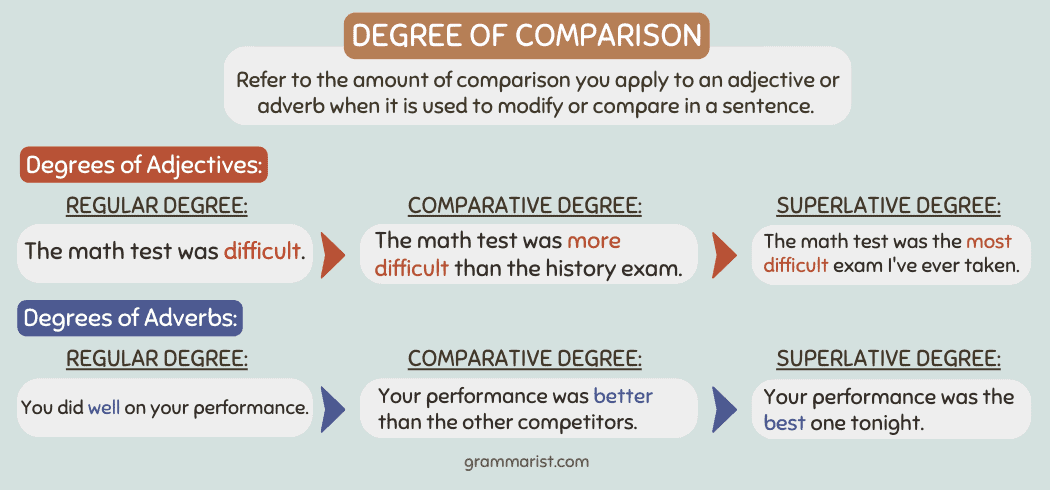Comparing yourself to others often leads to resentment. But in English, comparisons matter! They allow you to describe that something or someone has a bigger or smaller amount of a specific characteristic.
Find out how to form comparative adjectives in this article. Then, answer the three-part exercise with a printable PDF about comparative adjectives.
What Are Comparative Adjectives?

Comparative adjectives modify nouns and pronouns while expressing comparisons.
Some comparative adjectives are formed by using –er at the end of the word.
- Bigger
- Smaller
- Trickier
- Whiter
- Taller
Some comparative adjectives are formed by using the adverb more. This is more common among longer adjectives.
- More elegant
- More distant
- More elongated
- More expensive
- More intellectual
We can also use less for comparisons to show a smaller amount. For example:
- Less boring
- Less expensive
- Less hardworking
- Less comfortable
- Less greasy
Let’s Review Comparative Adjectives
Comparative adjectives are a type of adjective that compare two nouns or noun equivalents. Some forms require an -er ending, while others need the word more before them.
I hope this short guide with three exercises helps you practice using comparative adjectives in your sentences. Make sure to check your answers using the answer key to evaluate which parts of the topic require improvement.